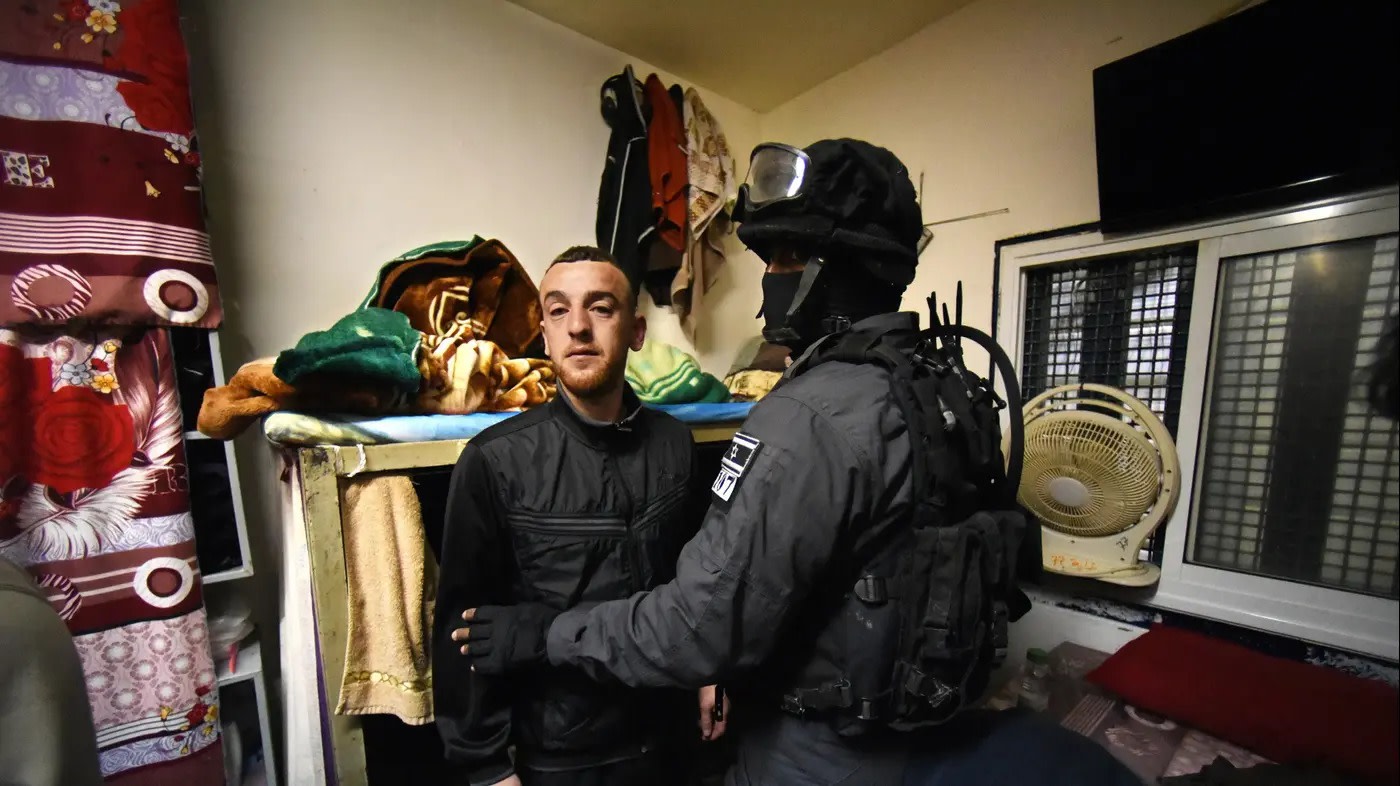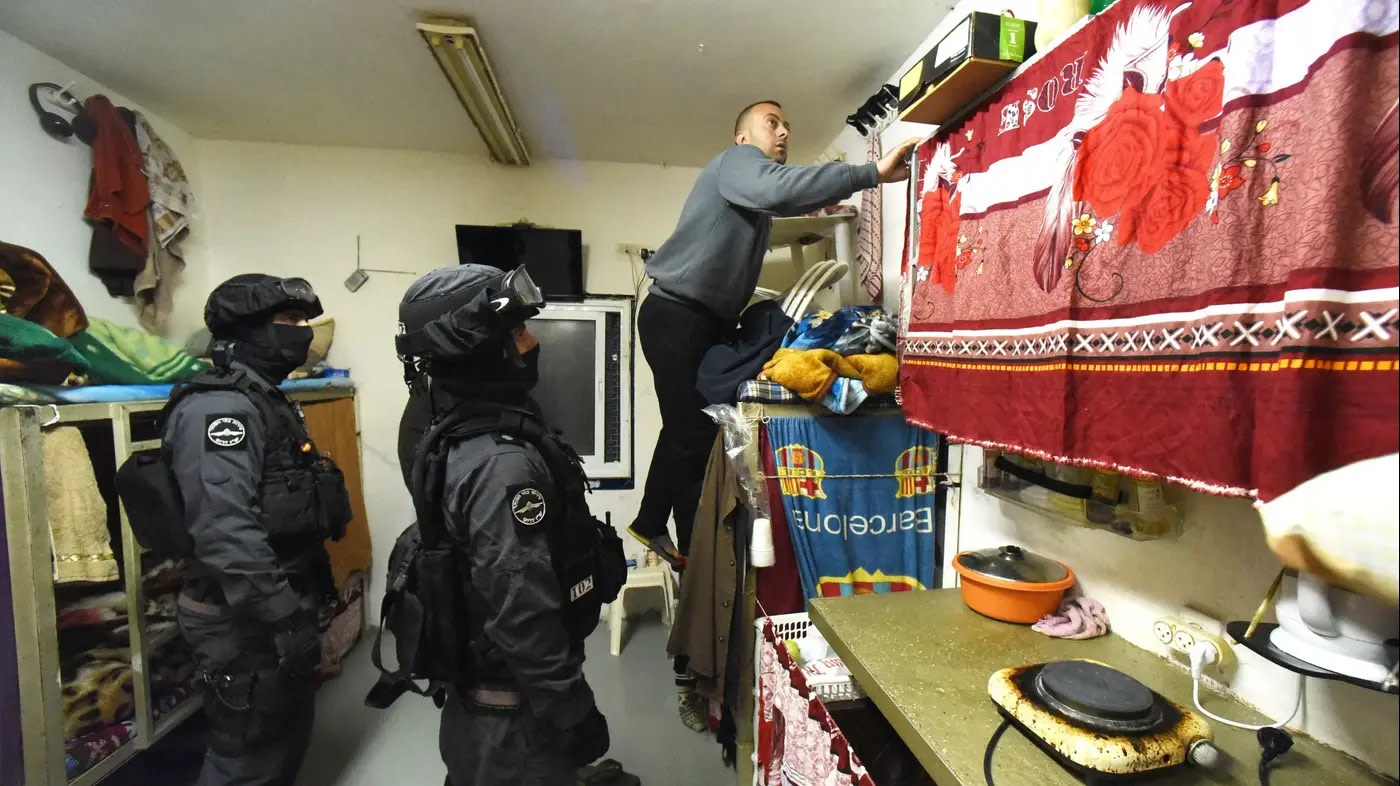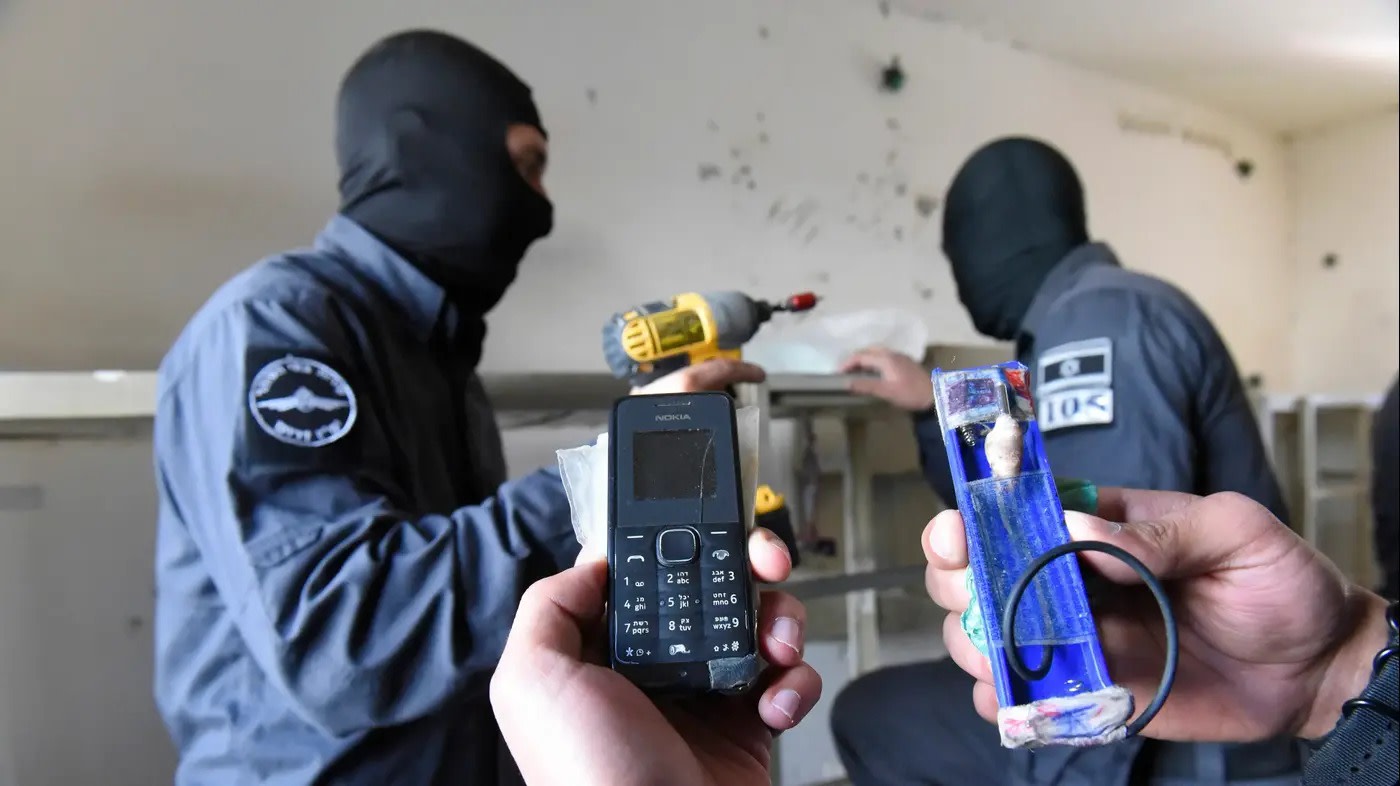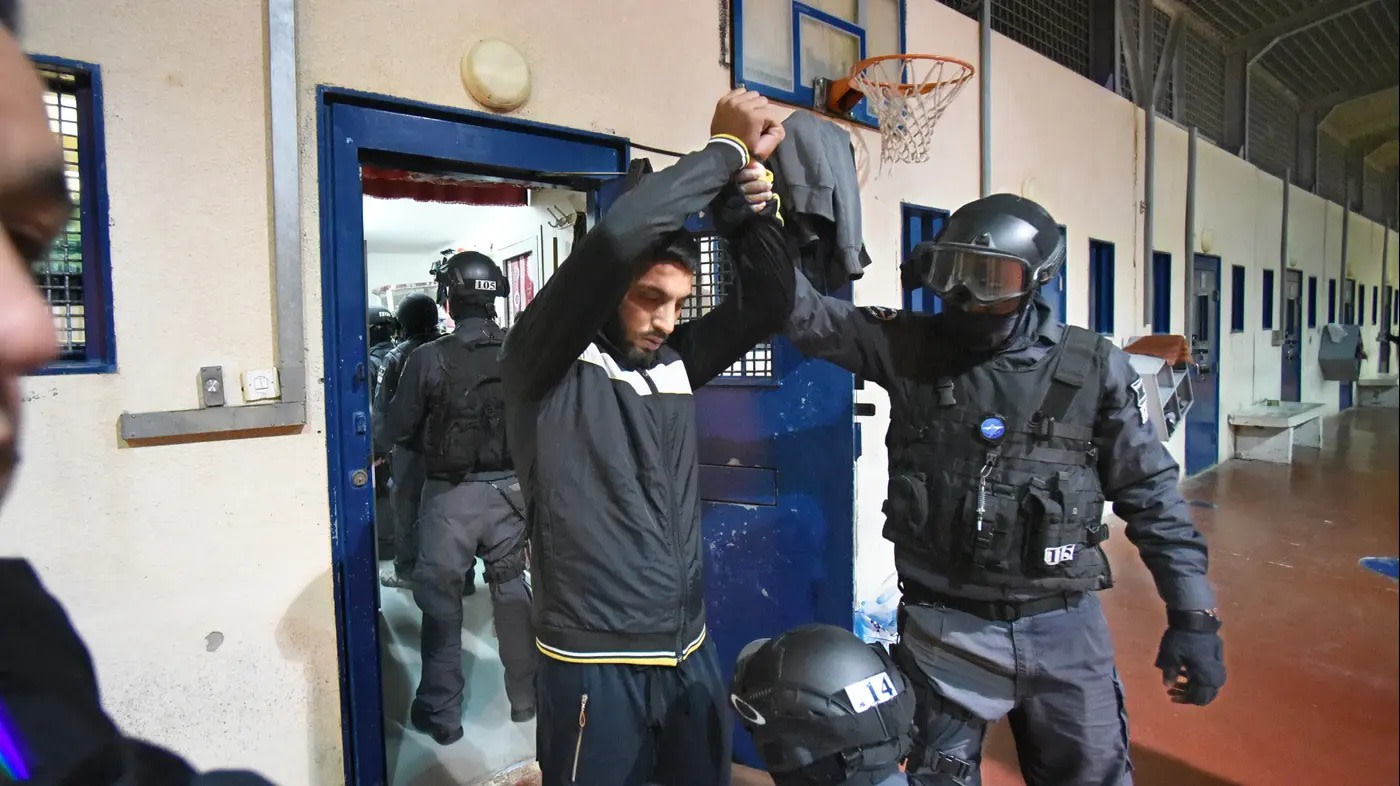The rights and power that the current Israeli legal system grants to security prisoners risks endangering Israel’s security, retired deputy commissioner of the Prison Service Gonder Chaim Glick warned.
Since October 7, it has become clear how some Supreme Court rulings have created a problem of wrong perceptions, he highlighted.
One such ruling from 2010 addressed a petition from "children of prisoners and security detainees."
Historically, physical contact between imprisoned terrorists and their children under 10 was permitted during the final quarter-hour of visits. However, the surge in attacks in the early 2000s led to increased security measures, prohibiting such contact - also after attempts to smuggle out objects and information through minors were uncovered by the security forces.
The Supreme Court, in response to a petition, challenged this decision, asserting that it infringed upon prisoners' rights to family ties.
Despite security concerns highlighted by the prison service, the court pressed for a compromise. Initially allowing physical contact for children under six, the court pushed further, proposing contact up to the age of eight at least once every two months. The prison service reluctantly accepted this compromise.
Retired deputy commissioner of the prison service, Gonder Chaim Glick, expressed concerns about the blurred line between security and morality.
Glick, a respected figure with extensive experience, previously emphasized the extraordinary conditions terrorists endure in Israeli prisons compared to those in Western prison systems. Glick said that the amenities create a perception of a "high-quality members' club."

Glick underscored the challenges faced by guards in monitoring prohibited objects, given the abundance of personal items, electronics, and consumables within prisoners' possessions. The dichotomy of providing comfortable conditions for security prisoners while maintaining deterrence poses a moral dilemma within Israel's penal system.
In the ongoing debate over the treatment of Palestinian prisoners, the delicate balance between security imperatives and respecting fundamental rights remains a persistent challenge for Israel.
Glick, with years of insightful analysis, highlights a fundamental flaw in Israel’s approach to counterterrorism. Drawing parallels between recent events in Gaza and longstanding issues within the Israeli Prison System, he notes a pattern of reluctance to address escalating threats for fear of backlash. This mirrors the caution exhibited by the Israeli Security Service, where actions to modify policies are hindered by concerns about potential reprisals.

Too many privileges
Reflecting on the evolution of conditions for security prisoners, Glick recounts how initial measures to improve living conditions spiraled into an indulgent system. The provision of better food, amenities, and even the canteen system, allowing terrorists to choose from a variety of items, has created what feels like a "high-quality members' club." This, Glick argues, blurs moral boundaries and undermines the deterrence required to deal with these individuals effectively.
Going back a year, revelations about the State of Israel facilitating funds for the Palestinian Authority to support imprisoned terrorists shed light on a disturbing reality. Glick pointed out the inherent problem in assisting the Palestinian Authority in providing rewards to individuals who have committed acts of terrorism against Jews.
Turning to the issue of prisoners' privileges, Glick questions the rationale behind allowing security prisoners to purchase additional items in the canteen, exceeding the Geneva Convention's provisions. Drawing a comparison with US federal prisons, where strict guidelines govern inmate purchases, he underscores the clutter in Israeli prison cells and the challenge it poses for effective monitoring.
In essence, Glick's perspective raises critical questions about the blurred lines between security considerations and moral principles, challenging the prevailing approach to handling security prisoners in Israeli prisons.

Glick questions the rationale behind allowing Fatah prisoners a monthly canteen deposit of NIS 1,200 and Hamas prisoners NIS 800. He challenged the state's involvement in the Palestinian Authority's influence within Israeli prisons. Notably, young security prisoners can complete matriculation, often facilitated by Arab-Israeli teachers or, in the past, a representative of the Palestinian Authority conducting exams. Glick criticized this collaboration, emphasizing the authority's portrayal of murderers as soldiers in Israeli prisons.
He questioned the exceptional privileges granted to terrorists, such as monthly allowances for red meat, fish, and fruit, surpassing conditions for criminal prisoners. Glick highlighted the absurdity of permitting cookware and hot plates, turning prisons into a realm of indulgence.
When asked about the prison service's responsibility, Glick noted the desire for state leadership. He criticized past leaders for retreating in crises, leading to the evolution of favorable conditions for security prisoners. Glick recalled the inception of allowing televisions in the 1980s, intending to educate prisoners, but it escalated into a system where Fatah and Hamas members enjoy multiple channels, cookware, and even the right to invite an external dentist.
Comparing practices to US federal prisons, Glick emphasizes the lack of deterrence in Israeli prisons. He questioned the need for amenities that surpass those given to taxpayers and underscores the imbalance between rehabilitation efforts for criminal prisoners and the unchangeable nature of security prisoners.

In contrast, he shared an anecdote from a US prison, where a commander stated a prisoner's sentence as "900 years without reduction by a third." Glick appreciated the seriousness with which the U.S. handles such matters.
Regarding prison spokespeople, Glick criticizes the structured system terrorists have created within Israeli prisons. He describes a hierarchical setup with arch-terrorists dictating decisions through an official spokesperson, creating an organized approach for negotiations, even involving prison service vehicles in facilitating meetings between different prison spokesmen.
"You have to understand that for criminal prisoners, my aim is rehabilitation,” he said. “I provide conversations, canteen access, education, and employment. However, with security prisoners, these options are limited. US prisons with minimal amenities contrast our prisons, seen more as models than deterrents. Terrorists live in better conditions than outside, supported by funds from their families. In the US, they take matters seriously, imposing long sentences. Within our prisons, terrorist leaders emerge.”
Discussing the movement of prisoners, a story about Former Minister Omer Bar-Lev highlighted the fear of potential consequences if security prisoners are moved.
Despite attempts at reform, political and security forces resist change. Former Minister Gilad Erdan faced opposition when attempting to implement cell blocking, showcasing the challenges in making significant improvements."
"That morning, I led a discussion on preparing for a terrorist strike and how to contain it,” Glick said. “The discussion included heads of the health system. I emphasized the need for more beds and the assurance that the strike wouldn't pose a threat to anyone. However, the terrorists, hearing about our preparations, began to issue threats. They warned of violence inside the prisons and the possibility of a strike.”
“Regardless of the threats, I insisted that the focus should be on containment,” he said. “Eventually, the situation escalated, leading to local phenomena such as burning cells.”
Reflecting on the situation, Glick expressed disappointment in the lack of systemic change over the years. He criticized the prevailing approach, prioritizing maintaining peace over taking action against threats. He emphasized the need for change to come from higher authorities, stating that the current approach mirrors the one that led to inaction against Hamas in the Gaza Strip, with a foreseeable outcome.
